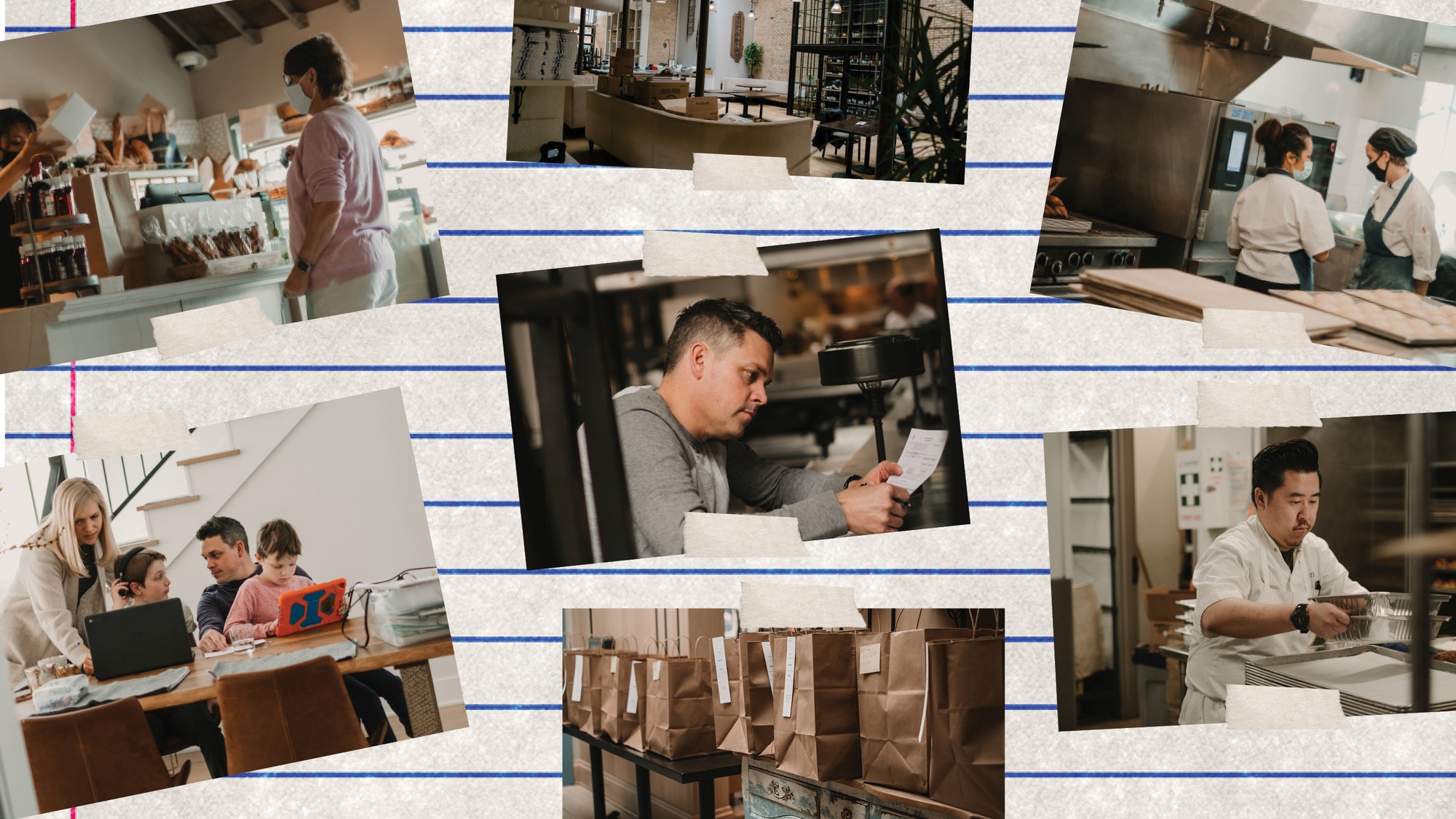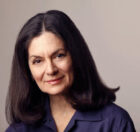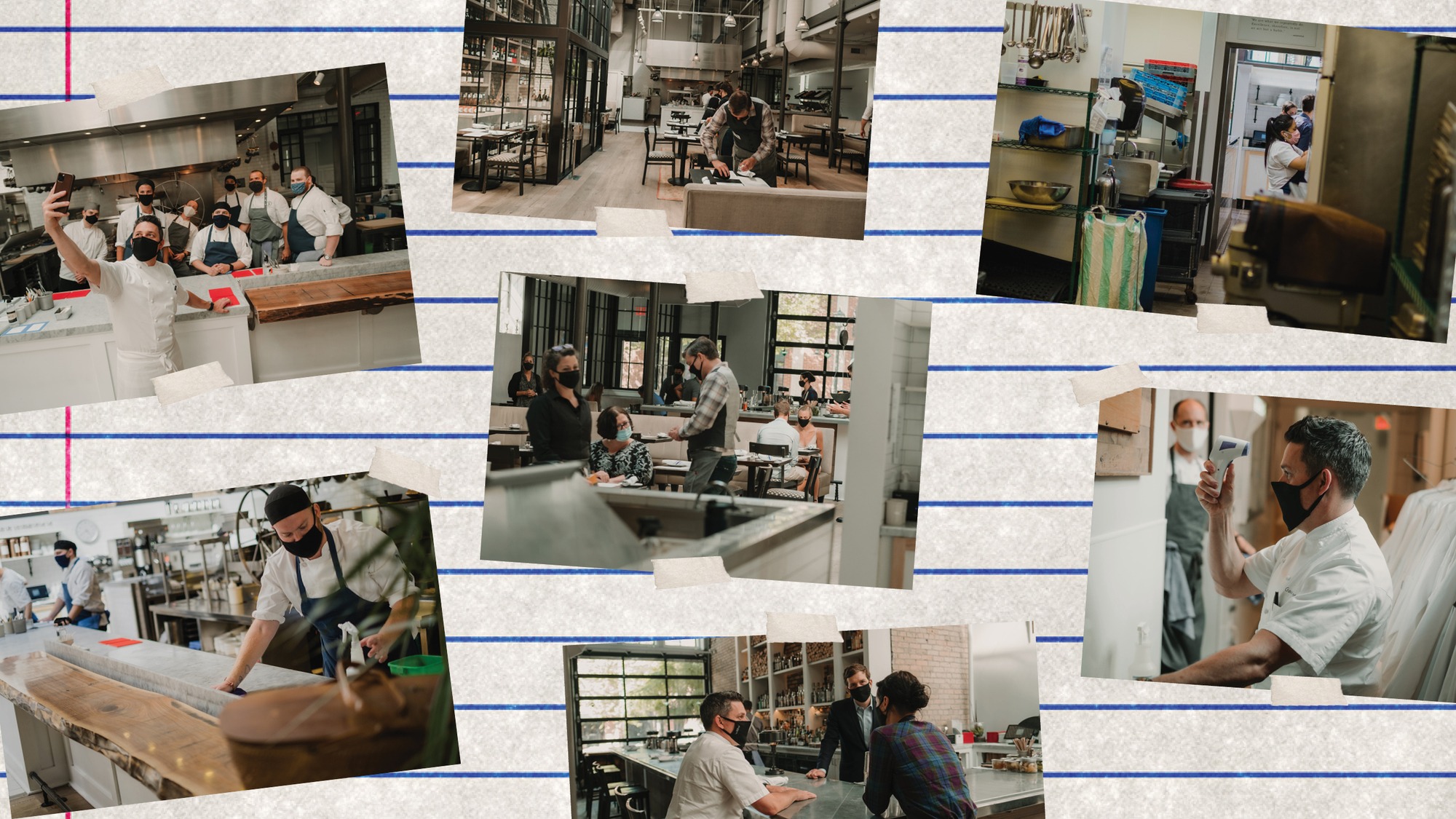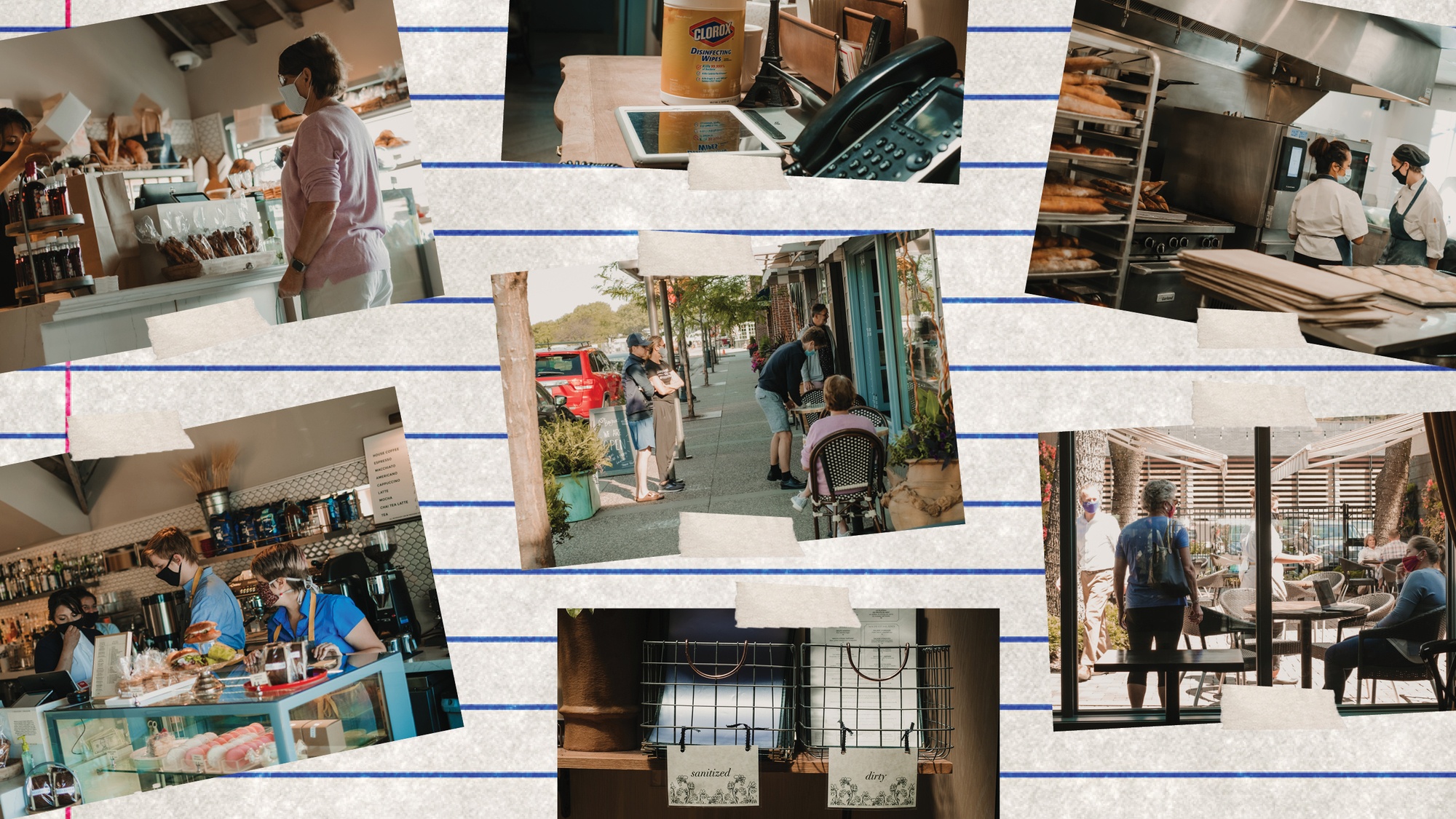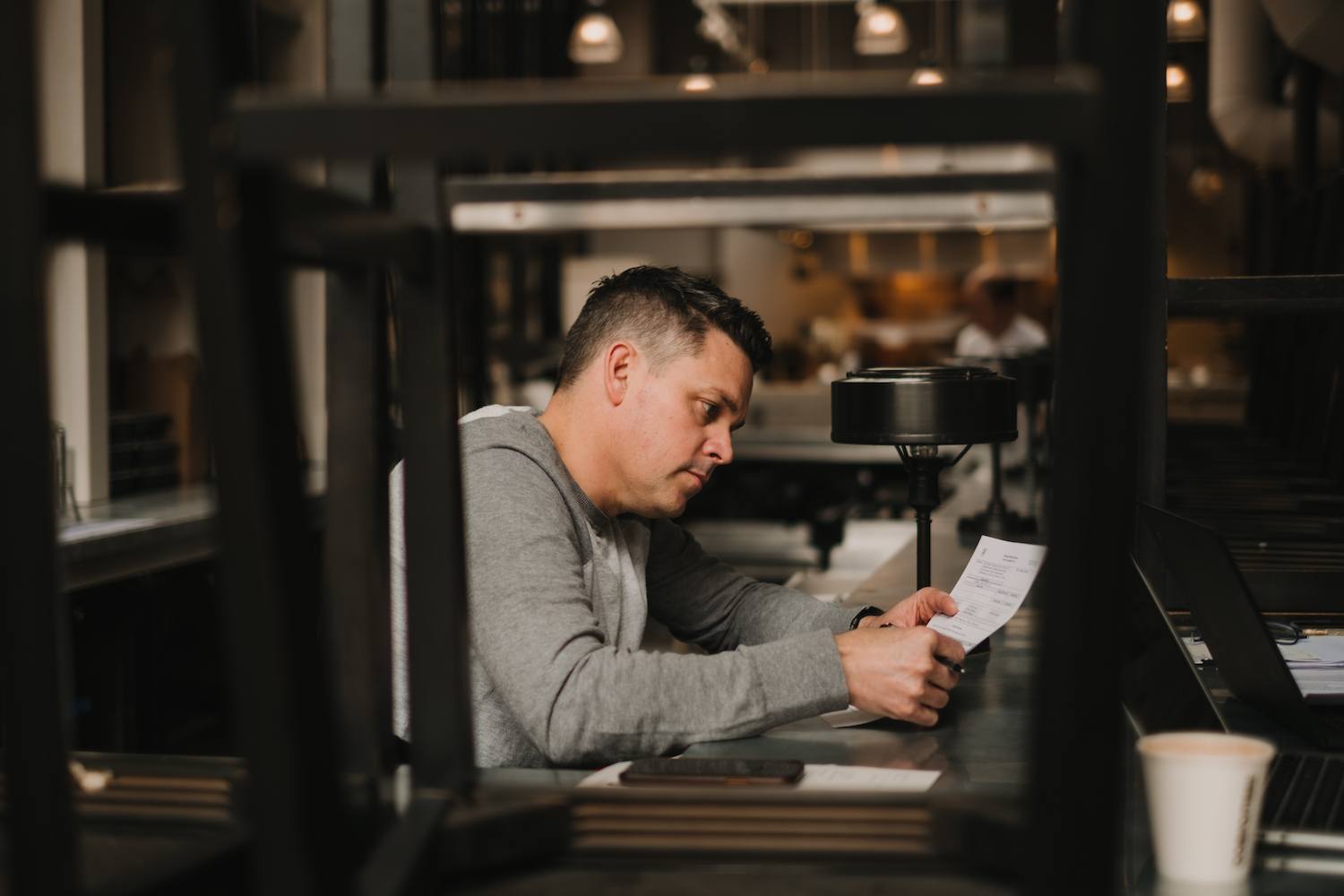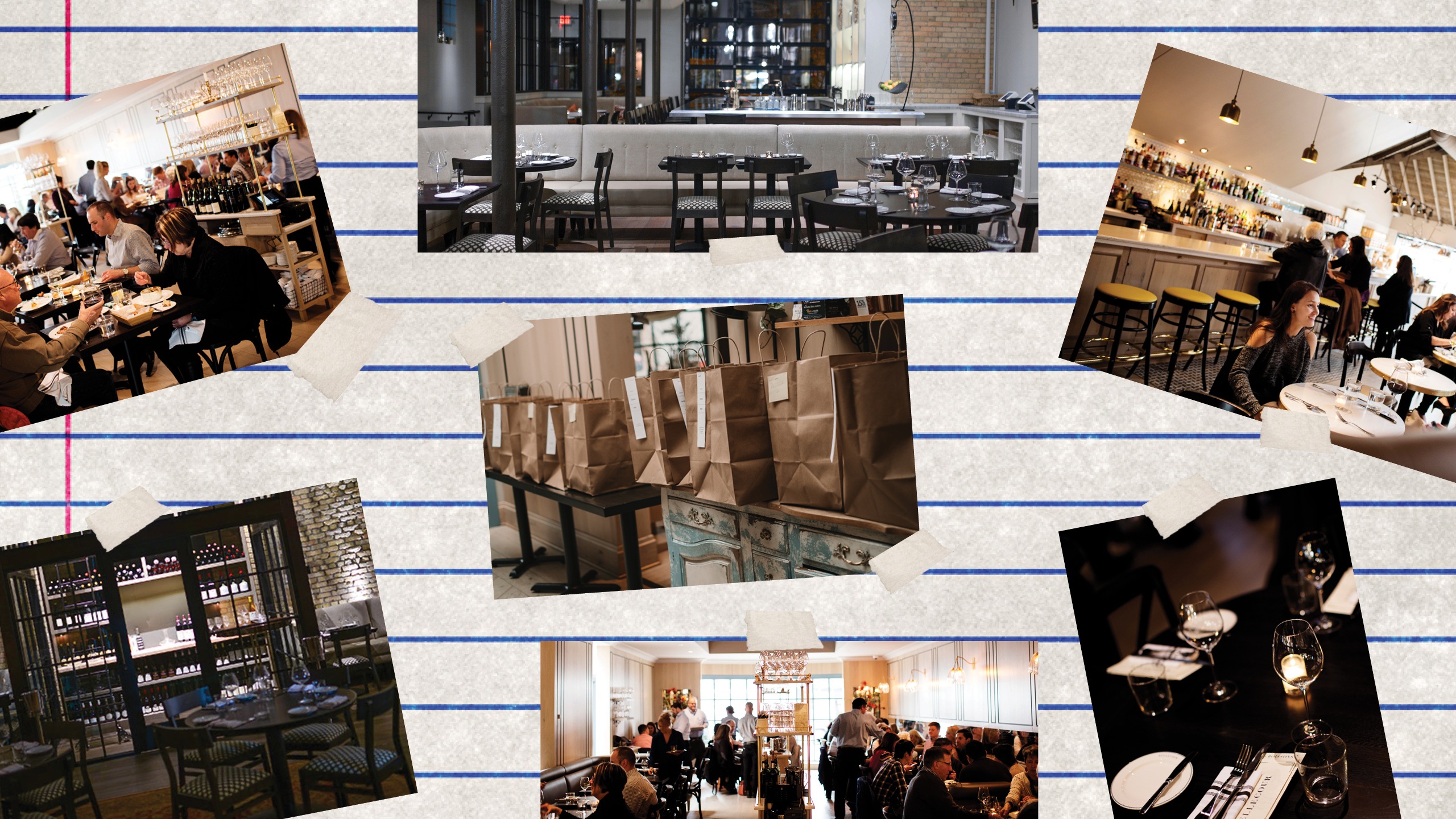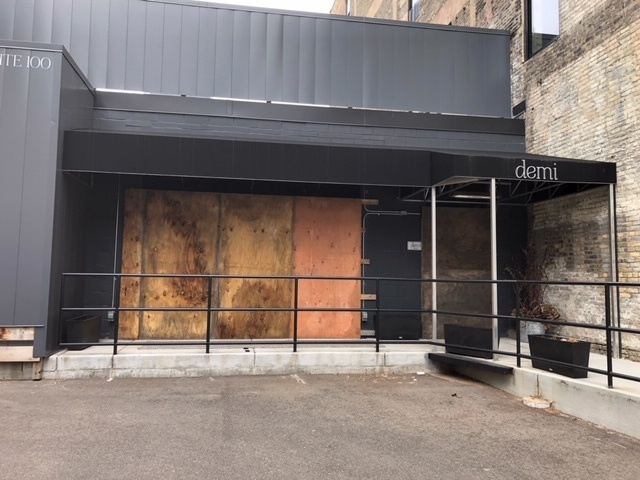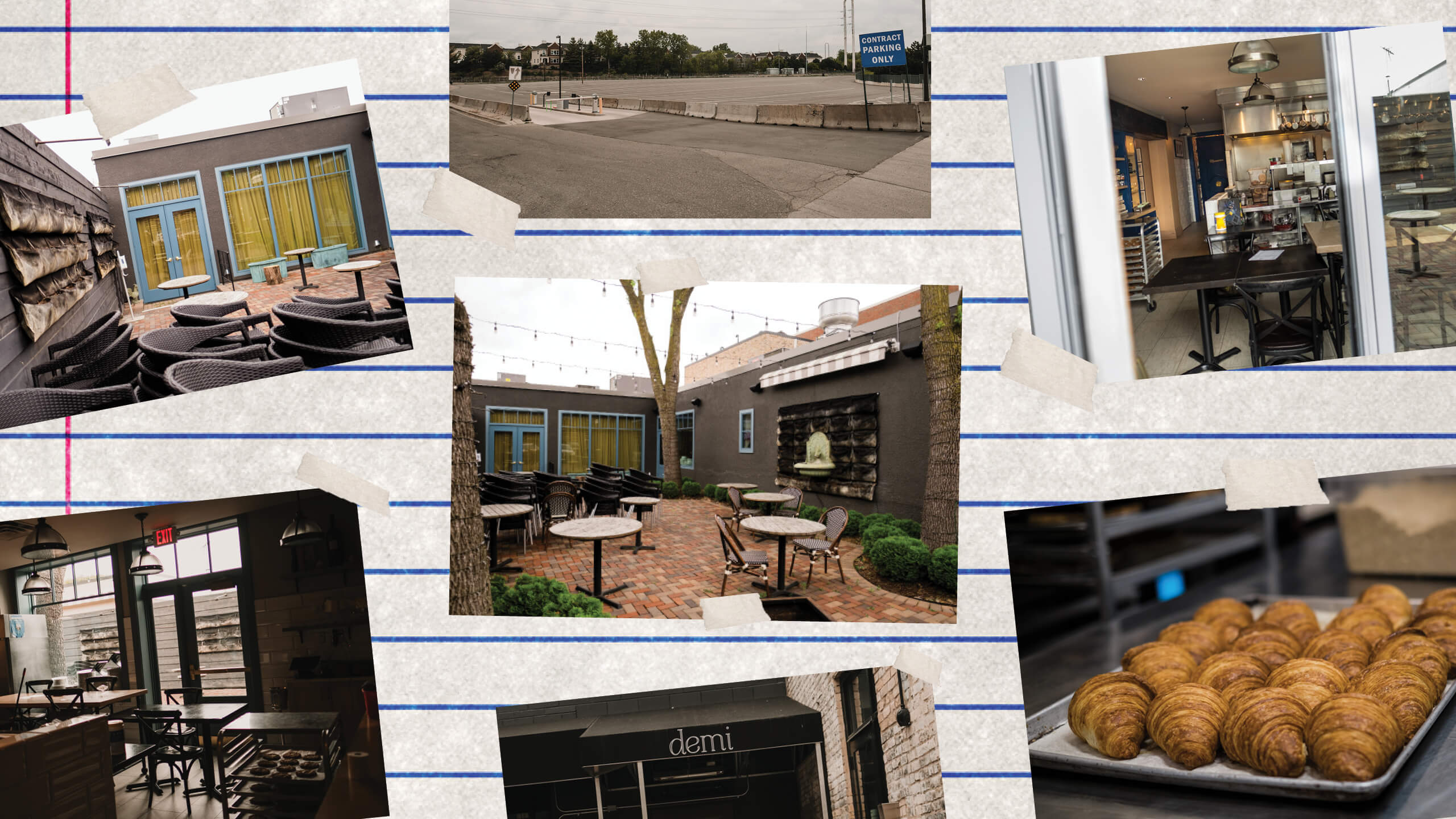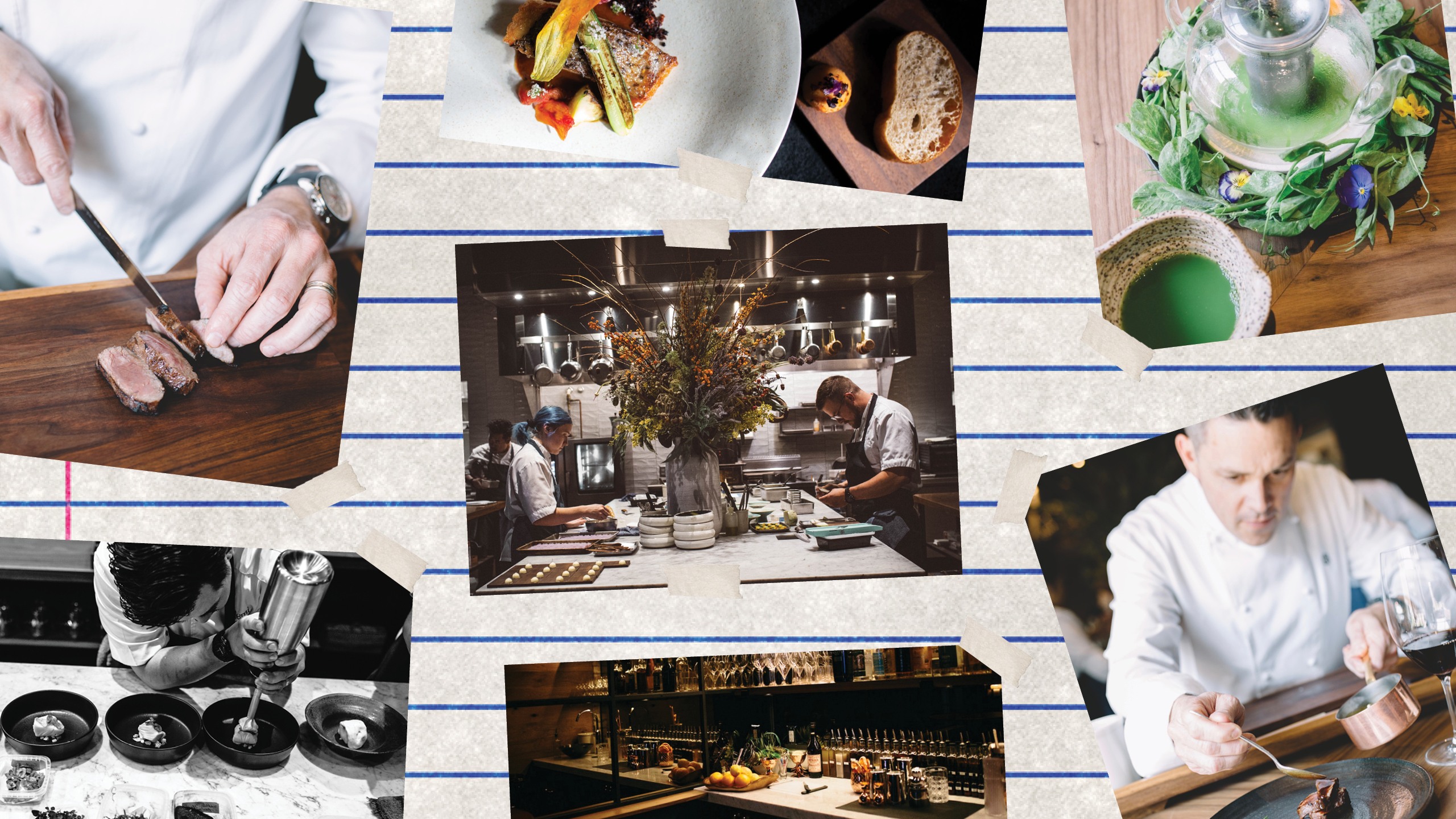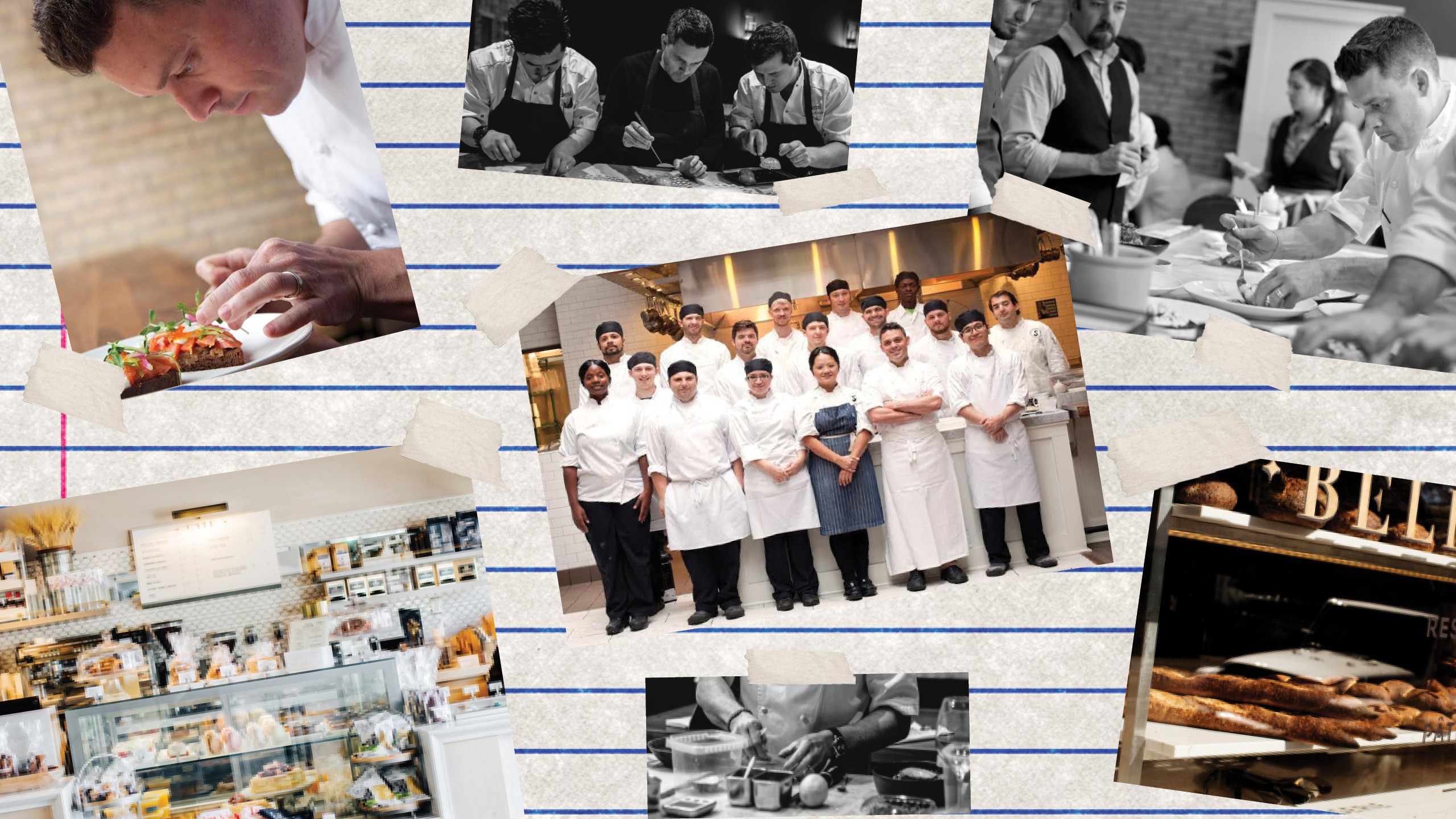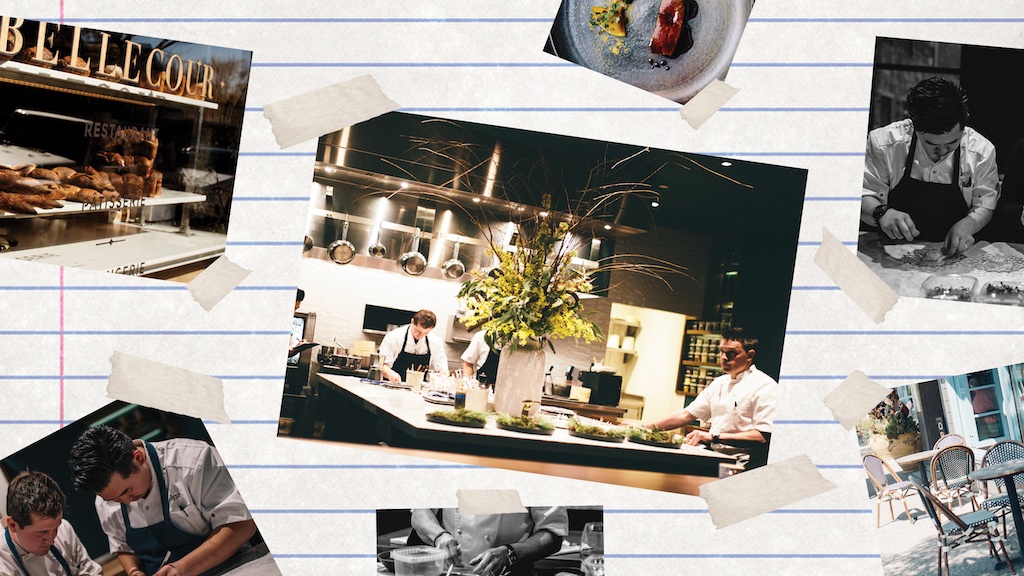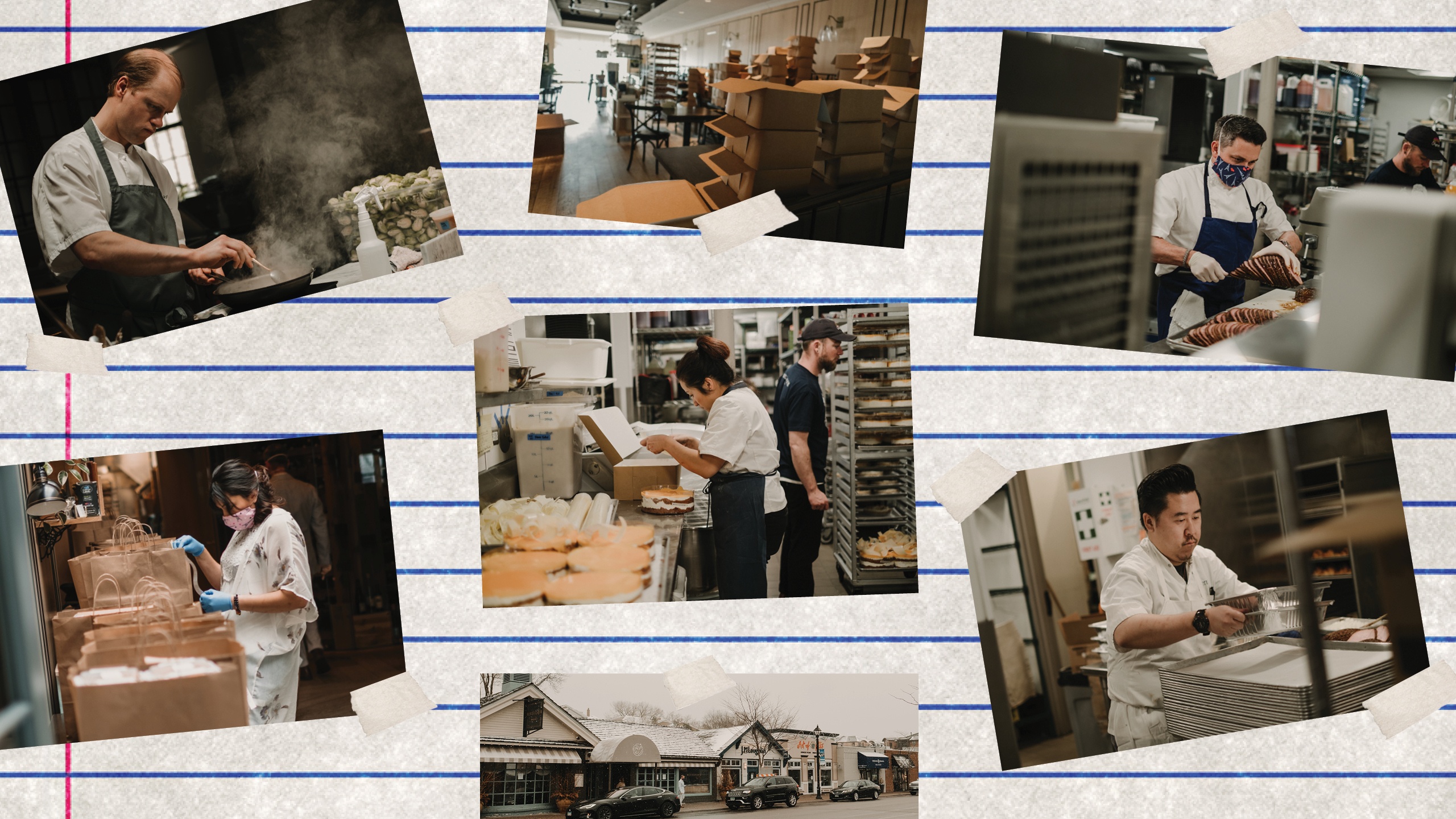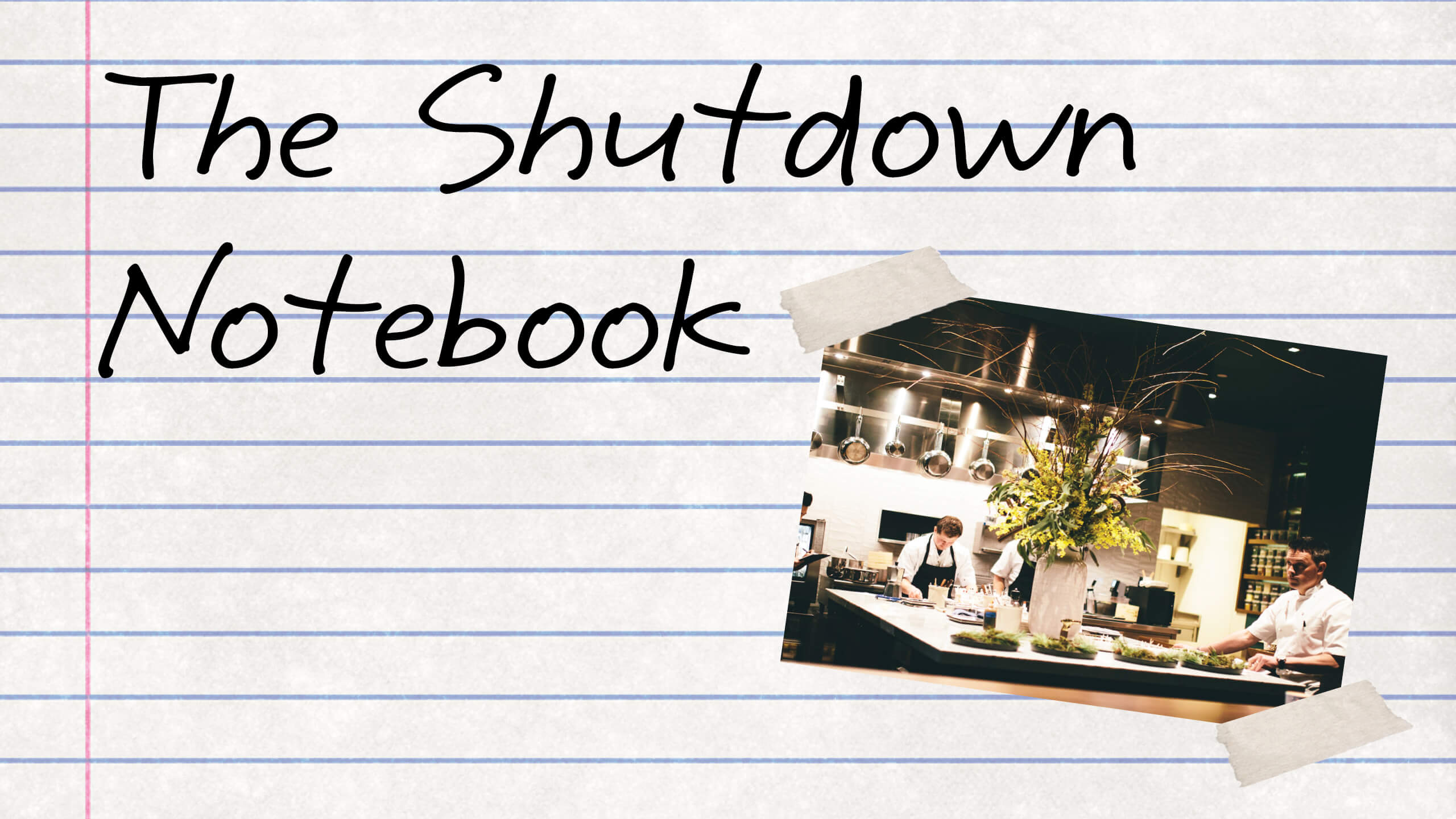
Photo by Libby Anderson/Flickr/Nicolas Raymond/Graphic by Talia Moore
An update of our 15-week series about one chef who closed three restaurants during the pandemic—and intends to get them back.
In the last six months, Gavin Kaysen has had three thriving restaurants, three closed restaurants, two closed restaurants, two partly-opened restaurants and a pop-up—and, as of September 19, three partly-opened restaurants. And the rollercoaster is several loops from the end; in fact, nobody can quite make out the end, because it’s obscured by unanticipated dips and swirls.
Is he happy to be back in some sort of business? Yes. Happy that Bellecour, the restaurant he lost, has been reincarnated as a permanent, much smaller fixture inside a cookshop across the street from his other two restaurants? Yes. Is he happy, period? No, though he looks for small ways to top off the glass so that it’s unarguably half full. Kaysen is luckier than restaurateurs whose places are gone forever, and he knows it—even as he faces a new normal that simply isn’t as gratifying as the old one was.
If he used to be delighted by a bakery line around the block, now he’s touched by the old Bellecour regular who drives 20 minutes every day to enjoy the transplanted experience. If he used to relish the elbow-to-elbow bar scene and packed reservations at Spoon and Stable, he’s grateful for the new regulars who show up every week. And his smaller, set-menu restaurant, Demi, continues to provide the chance to be creative, to give a dozen diners what he hopes is an incomparable evening of high-end hospitality.
But there’s always a shadow, or a group of them, hovering nearby: Numbers that are still a small percentage of healthy, a Midwestern winter that will shut down his outdoor operations, and lingering resistance from some potential customers, who await more certainty than currently exists. He does what he can, and gets used to the fact that much of what qualifies as reality is beyond his control.
—
A definite maybe
I went into the Bellecour pop-up with the owners of the cookstore Cooks of Crocus Hill, Carl and his wife, Marie, and we always said, If this works, great. If it doesn’t, great. We started in July, and when we looked at the numbers Carl said, I think it’s actually working. August is always a slower month here, people getting out of town one last time before school starts. But the numbers for August were pretty good, too.
We started talking about what it would mean to make it a permanent situation, on a shoestring budget, in a thoughtful way. And we got to Bellecour Bakery at Cooks of Crocus Hill. We were only able to save a few of the bakers from the original in Wayzata, a small handful, four employees. Diane Moua, our pastry chef, and I are doing it together, and our goal is to build a program for them, and with them, that enables Diane and me not to have to be there daily.
It’s funny how this thing was born, how the pandemic forced it to be a collaborative project. It’s interesting. We had all the heavy equipment in Wayzata, and the people who took over our lease there didn’t need it, so I was able to sell Carl the equipment at an inexpensive price, which helped us make the decision. And there’s not anything in the neighborhood that’s popped up since then. People are excited. It’s nice to have that excitement and joy.
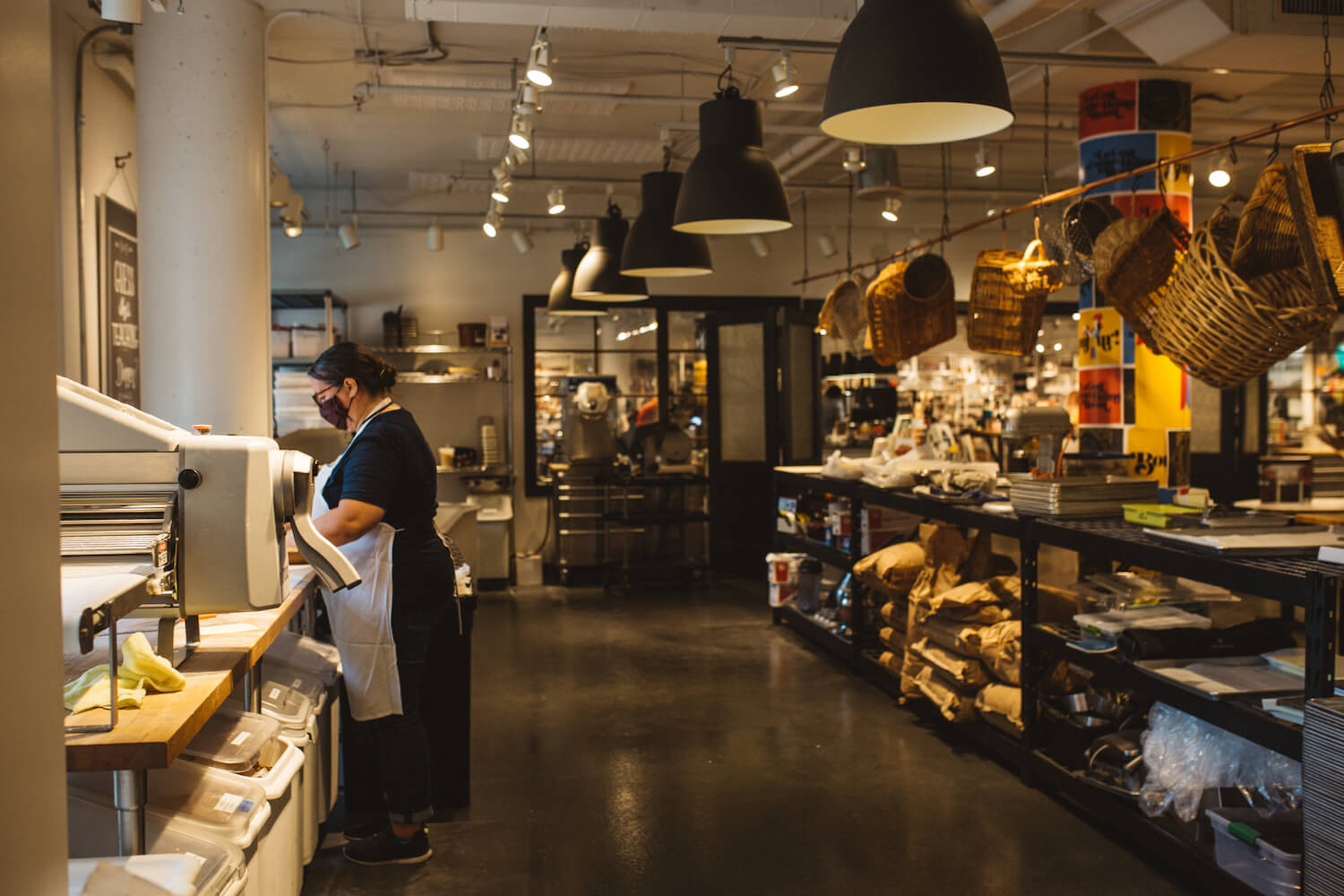
In July, the Bellecour pop-up bakery opened inside Cooks of Crocus Hill, a cookware store in Saint Paul, Minnesota.
Libby Anderson
We had an equipment company we partnered with, that works for all the restaurants, so they went out, unplugged everything, took it all apart, brought it to the North Loop and put it all back together. Heavy mixers, dough mixers, the sheeter for viennoiserie dough, the double-deck oven. And the new space for the kitchen is where Cooks cooking classes were held. It used to be a residential-built kitchen for classes to be staged. Now it’s a pro kitchen for a bakery, but they can still do nighttime classes there.
Sometimes I take a step back and ask myself, Would this ever had worked pre-Covid? It’s not a cute coffee shop. It’s a cute retail store that has a coffee shop and bakery inside of it, a totally different mindset.
We shut down on September 6, two weeks to flip it all, and during that time we just did coffee and shortbread cookies so we could reconfigure the kitchen. Everything will be baked on site, the bakers will be here, you can sit inside and smell things being made on-site. There’s something special to smelling a freshly-baked croissant. The joys of aroma.
And the beauty is that our team will be here, 20 feet from where customers are buying things; we can see what our guests want, adapt and learn. During the pop-up, we had people say we should do a breakfast bowl, heritage grains, egg, so we’ll add something like that. We need to evolve and change, listen to what the neighbors want and give it to them.
[Subscribe to our 2x-weekly newsletter and never miss a story.]
Sometimes I take a step back and ask myself, Would this ever had worked pre-Covid? It’s not a cute coffee shop. It’s a cute retail store that has a coffee shop and bakery inside of it, a totally different mindset. Could I have done something like this alone? It would’ve been really hard; people would have judged it differently. But there’s nothing left in this neighborhood; now, we’re it. I saw one guy who used to come to Bellecour in Wayzata, and now he’s going to make the 20-minute drive every morning to eat here, because it’s a part of his day.
It’s kind of numbing how fast this all happened. Six months ago, we had three restaurants and now we have two.
But I still get sad thinking about it. It’s funny—I am reminded every day by guests that they miss Bellecour. Either they live in Wayzata or they just used to go there, and it’s okay, it helps my grieving process a little bit, but I try not to think about it. I went out there one last time in early September, made sure everything was closed up and the keys were where they were supposed to be. And then I just said, ‘OK, good-bye, see you later.’
It’s kind of numbing how fast this all happened. Six months ago, we had three restaurants and now we have two.
The more things change, the more things continue to change
Spoon and Stable is still doing its thing, but we’re starting to lose our patio dining already because it’s getting cold. Next week is supposed to be a little warmer, which is great, but this week we haven’t had anything because it’s been in the ‘50s, and it froze the other night. Hopefully it’ll flip back around. Spoon is still running at 50 percent occupancy, so our revenue and sales are down 60 to 65 percent from pre-pandemic levels.
It’s really inconsistent, and that’s what’s difficult. Certain days you achieve your 50 percent occupancy, and then, on other days, you don’t. My intention is to watch and see what happens with fall and winter. We’re open seven days a week, but should we stay that way or close one or two days a week, that’s a question we’re all asking ourselves. My feeling was always to start at seven and trim to five, because it’s harder to go from five up to seven once you’ve introduced that shorter work week.
We might have to cut back.
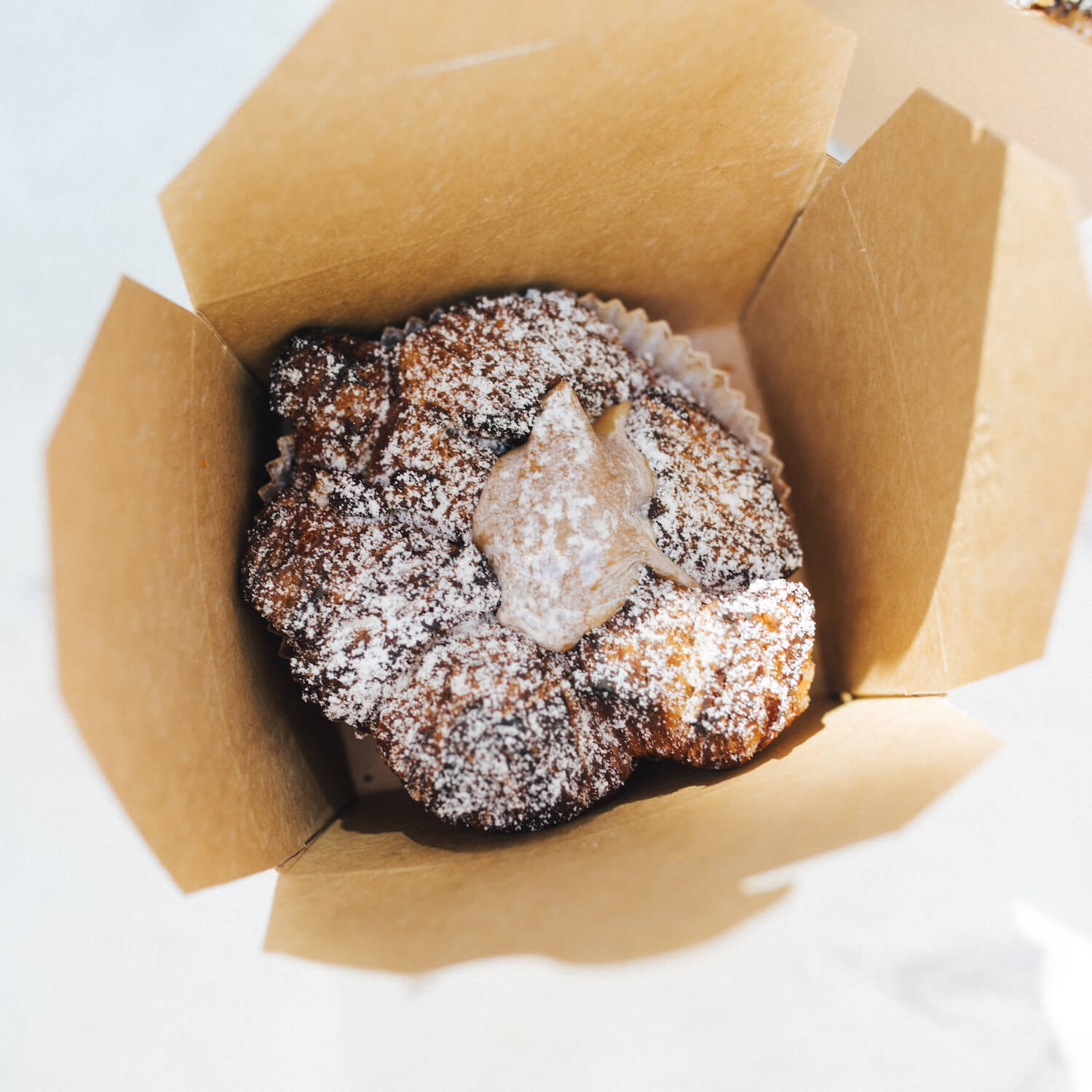
Libby Anderson
Previous customers in Wayzata make the 20-minute drive to the new Bellecour location.
And we had 14 seats on the outside patio that we’re going to lose, so we’re trying to figure out how to put 14 more seats inside. We’re not really able to do that, but if we lose those tables, and we had turned them twice, that’s 28 covers gone. That’s a lot.
Demi’s doing okay as well, at 50 percent occupancy. We lost the two tables we’d put outside, which is significant when you only do 12 seats inside, those four outside seats mattered. We’re trying to figure out how to combat the loss. We started to seat people in our lounge, two or four people, which we never did before, and people seem happy with it.
Demi is a little bit different because it’s an advance ticket arrangement. The revenue goes into our account when people buy tickets, so we know what we’ve sold. Now we have to figure out what we can do to increase that revenue. Wine pairings online, or, as we approach white truffle season, maybe add a supplement.
Behavior modification
We could open earlier, but the issue we have is that nobody is downtown working anymore. The crowd that’d come in at 4:30 to have an early dinner before a show, or a drink and snacks after work, that crowd’s gone away for the time being. It’s hard to get people to come in even at five, which never used to be the case.
I haven’t heard anything about the downtown area coming back soon. The main thing that Spoon and Demi face is that some guests still don’t feel safe coming downtown. That’s a question we get more than anything else. I’m here every day, I don’t feel unsafe, but I think a lot of it is from not only the civil unrest but what that looks like in social media and on television screens.
And a few weeks ago, there was an incident downtown that happened quickly, and was chaotic, and it startled people.
I’m a worst-case optimist, so I have to look at the possibility that a portion of our business will be gone—or altered so much that there will be a new reality. But taking care of somebody is taking care of somebody, however we end up doing it.
I think it’s hard. Some people are going to wait a very, very long time before they go out. And then, there was an article in our paper today, where the CDC said the majority of people who got Covid went to restaurants, bars, cafes—or at least that was the headline. The report also said those people had gone to grocery stores, shopping outlets, and gyms. So, don’t single out restaurants in the headline.
With all that, some people have been to Spoon every week since we opened. Some will continue to stay away.
At Demi, the consensus from our guests is that they’re pleased to be able to go out, and also pleased to be able to have an experience like the one they get. I’ve heard people say, every night, that it feels really, really safe there. If you’re two guests dining together, the only people you see are 10 other guests and five or six employees, so it’s less than 20 people in the space.
Every day I write the book
There’s an irony to having a discussion today [September 11] about what it means to come together and be united. After that day was maybe the first time we all felt united.
I don’t feel that sense of unity now.
My optimism is that we are going to be able to come back, restaurants will have that joy again, but I consider the worst case, too, which is that they won’t. I’m a worst-case optimist, so I have to look at the possibility that a portion of our business will be gone—or altered so much that there will be a new reality. But taking care of somebody is taking care of somebody, however we end up doing it.
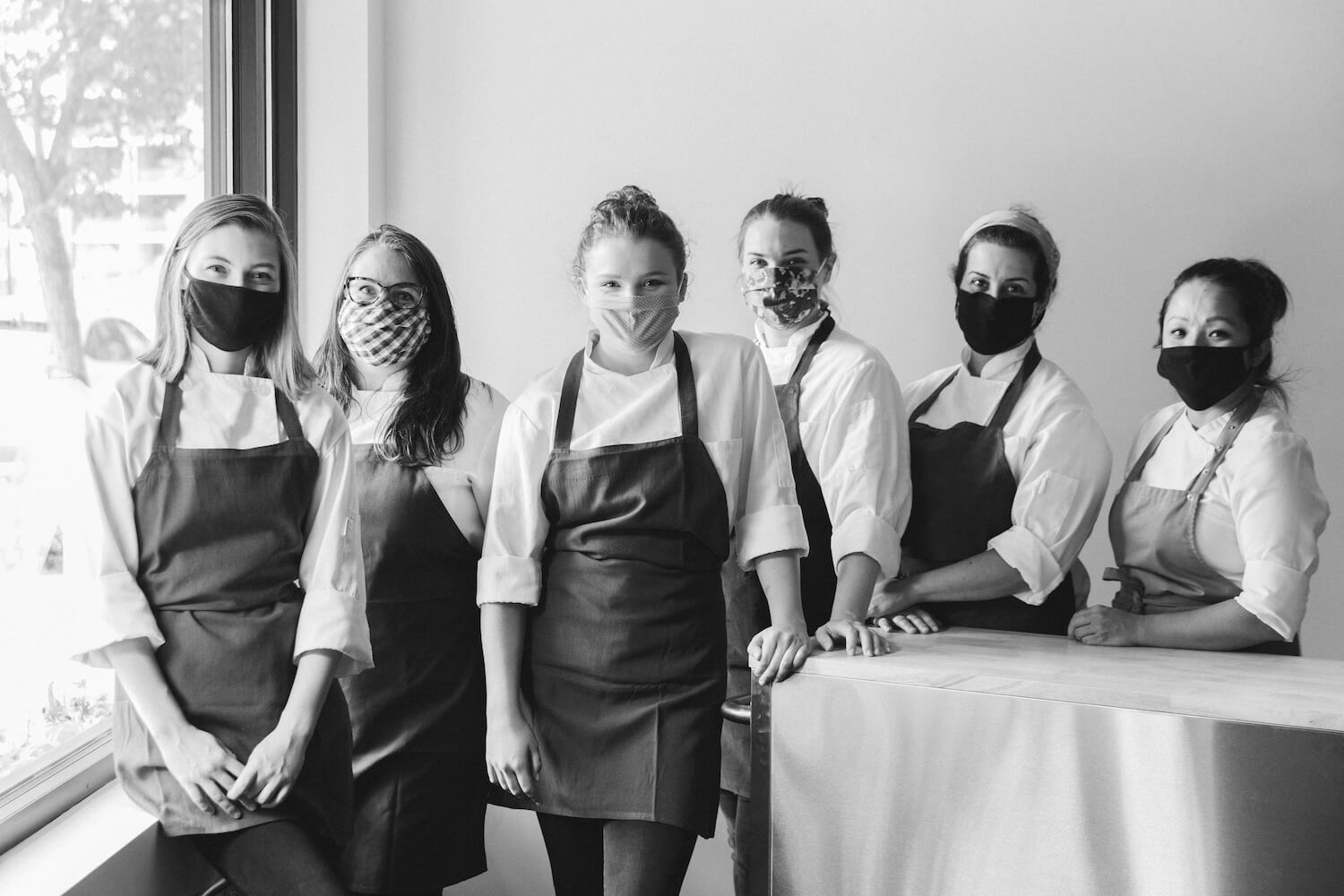
Only a small handful of Bellecour’s original team was able to be brought back to the new, downsized restaurant.
Will Cipos
Still, I have my ups and downs. I genuinely miss the joy of why I got into this business in the first place, hospitality, taking care of people. That’s been stripped away from us. It’s been tough, taking away the creativity, that portion of my brain that usually sparks and fires in a positive way, whether it’s menu creation, moments of hospitality, surprises and fun. That part of my brain is turned off completely, but I’m trying to get it turned back on because I don’t want to continue in survival mode. I need that.
I took a couple of days away from the physical restaurants last week, just with Linda and the boys, playing soccer and baseball with the boys a couple hours each day, and that helped boost my perspective a little bit.
But I’m just sad, is how I really feel.
